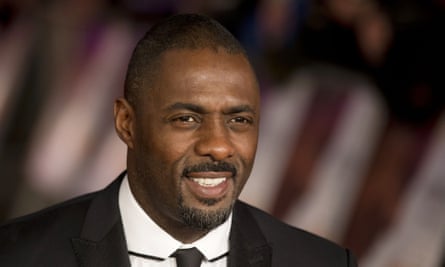Almost 60% of British films made in the past 10 years featured no named black characters, and just 13% cast a black actor in a leading role, research by the British Film Institute has found.
A study of 1,172 UK films found that just 15 black actors, five of them women, had played more than one leading role in the past decade.
More than half of the leading roles – defined as having a significant impact on the storyline – taken by black performers were concentrated in just 47 films, the study found. The subjects that recurred most frequently in films with a diverse cast were slavery, racism, colonialism, crime and gangs.
The figures were released to mark the start of the BFI London film festival, which opened on Wednesday with the European premiere of A United Kingdom by the black British director Amma Asante.
At a symposium to mark the festival’s launch, the film’s star, David Oyelowo, said people of colour had been “expunged from Britain’s history” because their stories were not represented on screen.
Describing himself as “a west African, a proud African, but also a very proud Brit,” Oyelowo said: “If my history, my indisputable British history, has never been visited, where does that put me? If we are only going to look at things that need a revisit, you are wiping me out of this country’s history.”
In an emotional address, he said he had been forced to move to America after feeling displaced and abandoned by the lack of roles for black actors in the UK. “I felt I had to leave. Please stop this talent drain. You have to change the demographics of the people who are making these decisions.”
The BFI study, which will form part of a comprehensive examination of UK films from 1911 to the present day, found that only four black British actors featured in a list of the 100 most prolific actors in British films. The figures showed little improvement in diverse casting over the past decade, even in years in which more films were released.
Heather Stewart, the BFI’s creative director, said the figures were important in providing a benchmark “from which we can start to see whether anybody is making any progress at all, and what makes the biggest difference.”
She said: “There is still very little colourblind casting. You get a role because it’s Nelson Mandela or Martin Luther King, or you get the usual genres where it’s crime, prison, hip-hop – where you expect to have black people. It’s this constant reinforcing of stereotypes.”
Changing the landscape, she said, came down to “who gets to say yes? Who are the decision-makers, the producers, editorial people who put the money in and say this is a story worth telling?”
Oyelowo’s comments echoed those of many other black British actors who have repeatedly questioned the lack of roles in film and TV made in the UK.

London-born Idris Elba, who like many actors had to move to America before he became well known, told MPs this year: “The Britain I come from is the most successful, diverse multicultural country on the earth. But here’s my point: you wouldn’t know it if you turned on the TV. So many of our creative decision-makers share the same background.”
The Academy awards were hit by a similar controversy in February when the omission of any African-Americans from the nominations in its four male and female acting categories sparked a wave of protests under the badge #OscarsSoWhite. The academy pledged to overhaul its voting system in response.
The BFI introduced standards two years ago requiring all films that wished to receive lottery funding to demonstrate a wide commitment to diversity and access both on and off screen.
Stewart said she hoped the institute would be in a position to measure the impact of the scheme within a few years. “We don’t want to be getting people in a room and coming back 10 years later and it’s the same. Because what our 10 years’ worth of data shows is a static picture.”
Later this month the BFI will launch Black Star, which it describes as “the UK’s biggest ever season of film and television dedicated to celebrating the range, versatility and power of black actors.”
Oyelowo, who was a Golden Globe nominee for his portrayal of Martin Luther King in the 2014 film Selma, will shortly be seen in Queen of Katwe, the true story of a young Ugandan girl whose life changes after a missionary introduces her to the game of chess.
The actor told the symposium that when he told his 12-year-old son he had landed a role in the Disney movie, “the first thing he said to me was: ‘Oh wow, daddy, are you going to be playing the best friend?’ I really didn’t know what to say, but what I knew was that that statement was a product of what he had seen.”